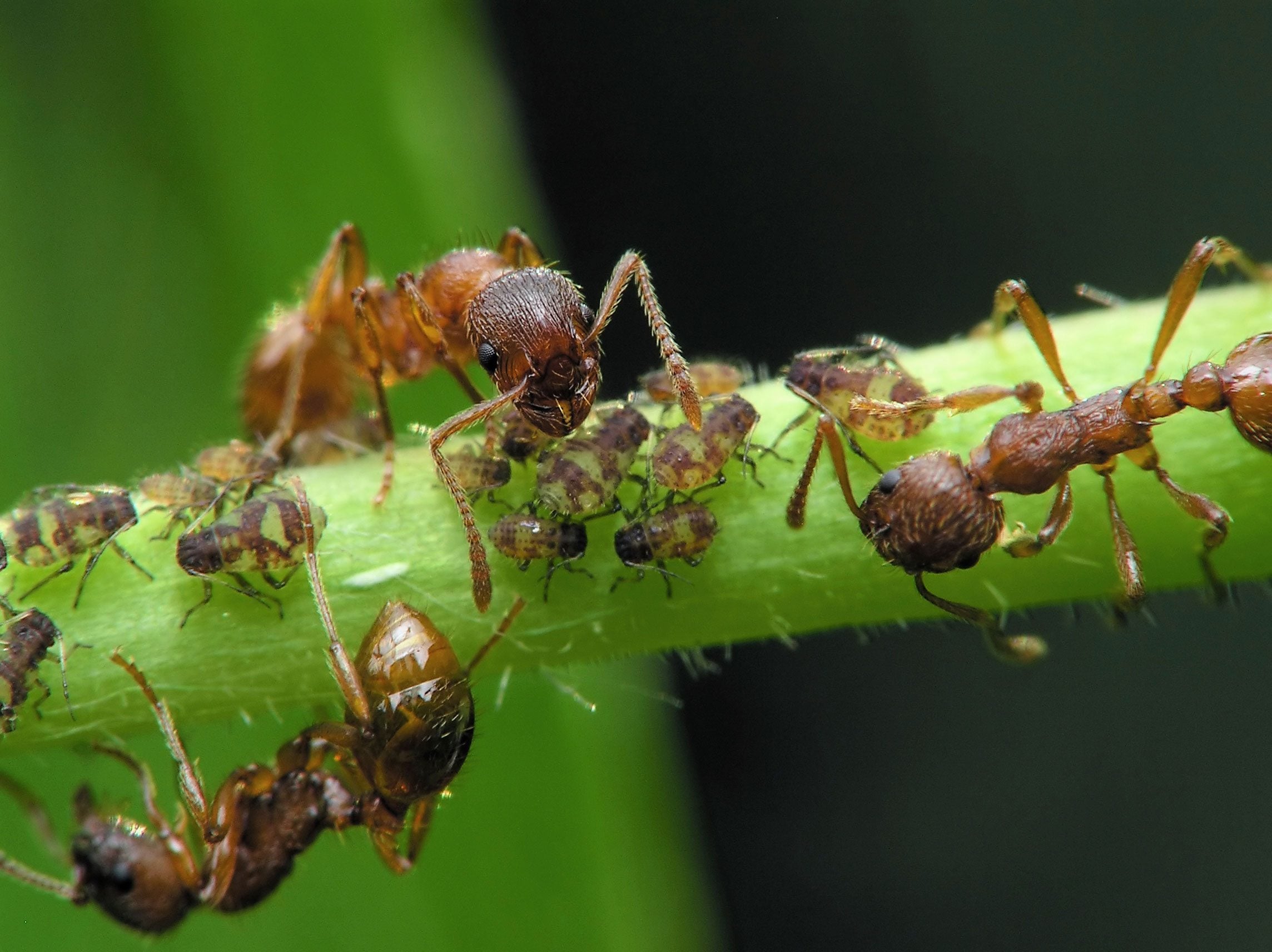How Do Aphids Help Ants: Controlling Aphids And Ants On Plants


Who would consider ants as farmers? Plant pests and picnic nuisances, yes, but farmer is not a vocation naturally assigned to these tiny insects. However, it is a true circumstance in which they herd and care for aphids in order to keep a much loved food in constant supply. Aphids and ants on plants are as interdependent as peanut butter and jelly.
Are Aphids Farmed by Ants?
Aphids are sucking insects that are common on both outdoor and indoor plants. They feed on the sap of plants and secrete a substance called honeydew. This sticky resin is a favorite food of ants, who actually “milk” the aphids for it by stroking their abdomen. The relationship between aphids and ants is symbiotic in that both receive some benefit from the arrangement. The unique relationship between these two organisms provides protection for the aphids and food for the ants. Ants protect the aphids from predators, such as lacewings and ladybugs. They have also recently been found to protect the aphids from a fungal outbreak that causes death, by removing the bodies of the infected aphids. Anytime you see a large number of ants on a tree or plant, it is likely you have a large infestation of aphids. Not all species of ant find this arrangement beneficial, but many of the more common species do indeed farm aphids in this way.
How Do Aphids Help Ants?
How do aphids help ants? Aphids feed the ants and docilely allow themselves to be moved if the ants require them to relocate. It is a fascinating arrangement where aphids and ants on plants live in close cooperative proximity. Farmed aphids supposedly produce larger drops of honeydew and more offspring. The sweet sticky stuff is a favorite food for ants, who also take it back to feed larvae. Plants where there are aphids farmed by ants may appear to be overrun by insects. This is where aphids and ant control take center stage.
Aphids and Ant Control
Managing ants is one way of controlling the aphid population. Ant bait stations are effective because the ants take the bait and bring it back to the main colony. This destroys more of the insects at one time. With less ants to defend them, aphid numbers will drop. A non-toxic method is to simply wrap the plant or tree with sticky tape or netting. This catches the ants and prevents them from tending to the aphids. In turn, the aphids are exposed to predators and their numbers will dwindle. Conversely, you can focus your attention on the aphid population. Without aphids, the ants will be forced to move on for food. Horticultural soap sprays or neem oil work well for aphid control.
Sign up for the Gardening Know How newsletter today and receive a free copy of our e-book "How to Grow Delicious Tomatoes".

Bonnie Grant is a professional landscaper with a Certification in Urban Gardening. She has been gardening and writing for 15 years. A former professional chef, she has a passion for edible landscaping.